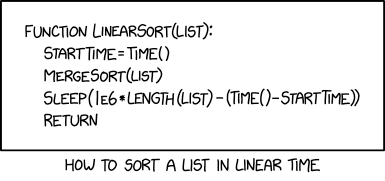Programming News and Views
Send your programming press releases, news items or comments to: NewsDesk@i-programmer.info
Azul And ChainGuard Team Up 22 Jul | Nikos Vaggalis  ...to secure Java container images that incorporate Azul’s build of OpenJDK. |
Linux Passes 5% Milestone 22 Jul | Harry Fairhead  Latest figures from StatCounter show that Linux achieved a 5.03% share of the Desktop Operating System market in June 2025, something that is being viewed as a pivotal moment for open-source software enthusiasts and industry observers alike. |
Agentic AI For PostgreSQL 21 Jul | Nikos Vaggalis  Agentic AI and MPC are coming to the database. We examine two options that will allow you to diagnose and tweak PostgreSQL, the modern way. |
Google Clarifies ChromeOS Android Merger 21 Jul | Kay Ewbank  Is Google planning on merging ChromeOS with Android? Last week it looked like the long-standing rumor had been casually confirmed by a Google spokesperson. This week, we're back to a position of 'as you were'. |
Cheap 3D Printed Robots Walk Off Production Line 20 Jul | Lucy Black  Robots that enthusiasts could build for under $500, and that are smart enough to walk off the 3D printer that formed them, have been demonstrated by a team at the University of Edinburgh. |
July Week 2 19 Jul | Editor  In this week's top featured article Harry Fairhead shows how to work with IoT devices using the Raspberry Pi 5 and Gpio5. What's Gpio5? It is a new open source library written by Harry specifically to let the Pi 5 work directly with GPIO hardware. It is based on the Pico SDK for the RP1 microprocessor, the chip that also powers the Pi 5. |
Coursera Plus - Your Ticket To Success 18 Jul | Sue Gee At the moment Coursera Plus has a special offer for new subscribers. If you love learning new skills or keeping your existing skills up to date, it's worth your immediate attention. |
Blender Free Game Tops Steam 18 Jul | Lucy Black  Blender Studio has released a free-to-play game on Steam that is designed not just to be fun to play, but as an example of what you can create in the games arena using just open source software. |
Take Part In GitHub's Copilot Adventures 17 Jul | Nikos Vaggalis  GitHub Copilot Adventures is a repository that, through fun and educational play, teaches how to use Copilot effectively. |
Google Firebase Studio Adds AI Features 17 Jul | Kay Ewbank 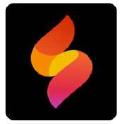 Google has updated Firebase Studio with new Agent modes, foundational support for the Model Context Protocol (MCP), and Gemini CLI integration. |
AI Leads To Slowdown In Developer Productivity 16 Jul | Sue Gee 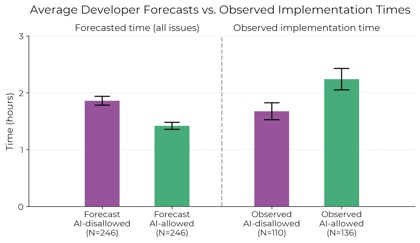 Empirical research into whether access to AI-powered tools, primarily Cursor, reduces or lengthens the time taken to deal with routine software development tasks produced an unexpected result. Using AI tools increased task-completion time by 19%. |
TIOBE - Two To Rule Them All 16 Jul | Mike James  The July Tiobe index is out and it isn't particularly interesting until you notice that it confirms the standard model of programming - code is written in Python and C and everything else is just noise. |
Understanding AWS Plans For New Subscribers 15 Jul | Sue Gee  Amazon has made major changes to AWS accounts that came into effect today. If you are new to AWS do the benefits of signing up to a Free plan outweigh the disadvantages and risks? |
Codacy Guardrails For Secure AI-Generated Code 15 Jul | Kay Ewbank  Codacy has released Guardrails, a new solution for securing AI-generated code directly in the IDE to prevent vulnerabilities in code completions from reaching Git. |
Geany 2.1 Improves UI 14 Jul | Alex Denham  Geany, the lightweight IDE, has been updated to add new themes and support for more file types and platform-native file selection dialogs. |
Akka Launches Agentic Platform 14 Jul | Kay Ewbank  Akka has launched a new Akka Agentic Platform that can be used to build, operate, and evaluate any type of agentic AI system. The platform provides orchestration, memory, toolkits for agents, and streaming capabilities. |
AI-Powered Wearable Can Monitor Knee Joint Torque 13 Jul | Harry Fairhead  Knee-related conditions such as osteoarthritis and rheumatoid arthritis significantly impact mobility and also increase susceptibility to injuries, creating a cycle that leads to chronic pain, reduced function, and long-term disability. Now researchers have come up with an AI-powered wearable to analyse complex dynamic motion signals of the knee joint for accurate torque monitoring. |
July Week 1 12 Jul | Editor  This extended version of the newsletter emailed to subscribers every Wednesday lists the week's news items, Book Review and additions to Book Watch and the week's two feature articles. This week Mike James explains how to use masks to work with bit patterns in Python and we look at the fascinating story behind the spreadsheet and how Mitch Kapor founded Lotus Development Corporation. |
Other Articles
|

Book Review
15 Jul
Author: Joel Murach This is an updated edition of a longstanding popular title. The new edition adds a chapter on cloud computing and hosting MySQL on Amazon Web Services, and updates the information for MySQL 8.0.33, removing deprecated data types and functions and adding new statement options and clauses. |
Featured Articles
Data Structures - Trees 20 Jul | Mike James  Classic data structures produce classic tutorials. In this edition of Babbage's Bag we investigate the advanced ecology of trees - perfectly balanced trees, AVL trees and B-Trees. |
Raspberry Pi 5 IoT In C - I2C with Gpio5 16 Jul | Harry Fairhead 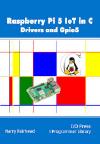 The Gpio5 library is a replacement specifically for the Raspberry Pi 5 and CM5 for direct access libraries such as Wiring Pi, bcm2835, pigpio, etc and it provides direct access to the GPIO lines, SPI, PWM and I2C. This is an extract from the Raspberry Pi 5 IoT In C: Drivers and Gpio5 on how to use it with I2C. |
Jay Forrester and Whirlwind 14 Jul | Historian  Today we celebrate the 107th birthday of Jay Forrester. Discover the man who invented core memory and, indirectly, gave the Core section of IProgrammer its name. |
Programmer's Python Data - Bit Masks 07 Jul | Mike James 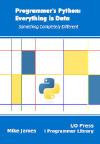 To work with bit patterns you have to master the mask. Find out what lies behind in this extract from Programmer's Python: Everything is Data. |
Mitch Kapor and Lotus 1-2-3 04 Jul | Historian  The spreadsheet was a remarkable invention and yet the people who pioneered it didn't reap all the rewards they should have. Today we take spreadsheets for granted, but there is fascinating story lurking behind the scenes. |
Unhandled Exception!
|
Book Watch
Follow Book Watch on Twitter
Book Watch is I Programmer's listing of new books and is compiled using publishers' publicity material. It is not to be read as a review where we provide an independent assessment. Some but by no means all of the books in Book Watch are eventually reviewed.
21 Jul This book looks at the challenges of game development from rendering complex 3D scenes to managing AI behavior and handling animations using high-performance C++ data structures and algorithms. Zhenyu George Li and Charles Shih-I Yeh show how to apply practical C++ techniques to create smooth, scalable, and intelligent games. |
18 Jul In this book linguist Adam Aleksic explores how internet algorithms are transforming language and communication in unprecedented ways. From "brainrot" memes and incel slang to the trend of adding "-core" to different influencer aesthetics, the internet has ushered in an unprecedented linguistic upheaval. We're entering an entirely new era of etymology |
16 Jul This book covers the essentials of modern Fortran, and is written for all ages and all skill levels. Mike McGrath starts from setting up your coding environment and starting to write Fortran programs with the Fortran programming language and the modern Intel IFX Fortran compiler. Color-coded examples illustrate the text, and all source code is available to download. |
| More Book Watch |
Previous Book Watch.
Follow Book Watch on Twitter.
Publishers send your book news to:
bookwatch@i-programmer.info
